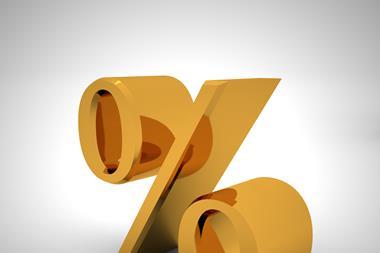When InProp UK Commercial Property Fund, the UK’s only property derivatives fund, last week told investors their money would be returned and the fund was entering a period of dormancy, it caught many by surprise.

In today’s bullish market, announcements like that don’t come along very often.
For InProp Capital, the move came after it decided that towards the end of 2014 pricing on the Eurex property derivatives market had reached such a level that it had become too risky to invest.
It’s a move that poses some very interesting questions. Is this a sign of the market overheating or is it a problem that is unique to derivatives? And what does it mean for other easy-to-access investment vehicles, such as listed property companies?
High premium
Paul Ogden, a partner at InProp, says the fund manager was not calling the top of the market. Rather the premium for getting into property had hit such a high that it could no longer justify rolling over investments.
Everything that is easy to buy is trading at a premium
Property derivative prices are currently pricing a total return for calendar year 2015 at 8.25%. This means that property returns for the year, as measured by the IPD UK Annual All Property Index, have to hit 8.25% for investors committing their money today to break even.
For Ogden, this premium was too high to countenance. “We could see that by rolling over we were locking in an underperformance of about 7% against the IPD,” he says. “A little premium was okay, but given the uncertainties facing the market, that was too much to pay.”
Increasingly, the same applies to other real estate investments that are easy to buy into. Shares in UK REITs have already made double-digit gains in January alone and now it is a struggle to find any listed property company trading at a discount to NAV.
“Everything that is easy to buy is trading at a premium,” says Ogden. “It shows what people are willing to sacrifice to get into real estate.”
The long game
InProp says it will wait until pricing comes down again before looking to reactivate the fund. In the meantime, it is focusing on its new Trident fund, which invests in derivatives, REITs and REIT debt. Trident is aimed at professional investors who currently put their money in REITs but who may be concerned that the investments are not offering good value and would prefer a product that has lower risk and is less volatile.
The key thing is: do you think this is going to be a good year for property?
However, not everyone agrees with InProp’s decision to close the fund. Steven Grahame, fund manager of IFSL North Row Liquid Property Fund, which invests in derivatives, real estate debt and REITs for retail investor audiences, believes that even for investors buying today, derivatives and REITs still offer good relative value.
The vast majority of forecasters have predicted double-digit returns for 2015. According to Grahame, this means that even those paying a premium to get into real estate now could still expect a reasonable return compared with bonds and equity.
“The key thing is: do you think this is going to be a good year for property? It is like 2010 again when people thought derivatives looked expensive but returns ended up at 15%,” he says.
Derivative pricing has rarely been a great forecasting tool. At the beginning of 2009, derivatives were pricing total return for the year at -8.8%, but it turned out to be -22.1%. Then in 2010, at the start of the year derivatives were -18.5% and actual returns were 3.5%.
For investors, what return they get depends to a large extent on what price they buy in at. Anyone who can overcome this issue and develop a derivative product that genuinely tracks the IPD could stand to make a lot of money indeed.
























No comments yet